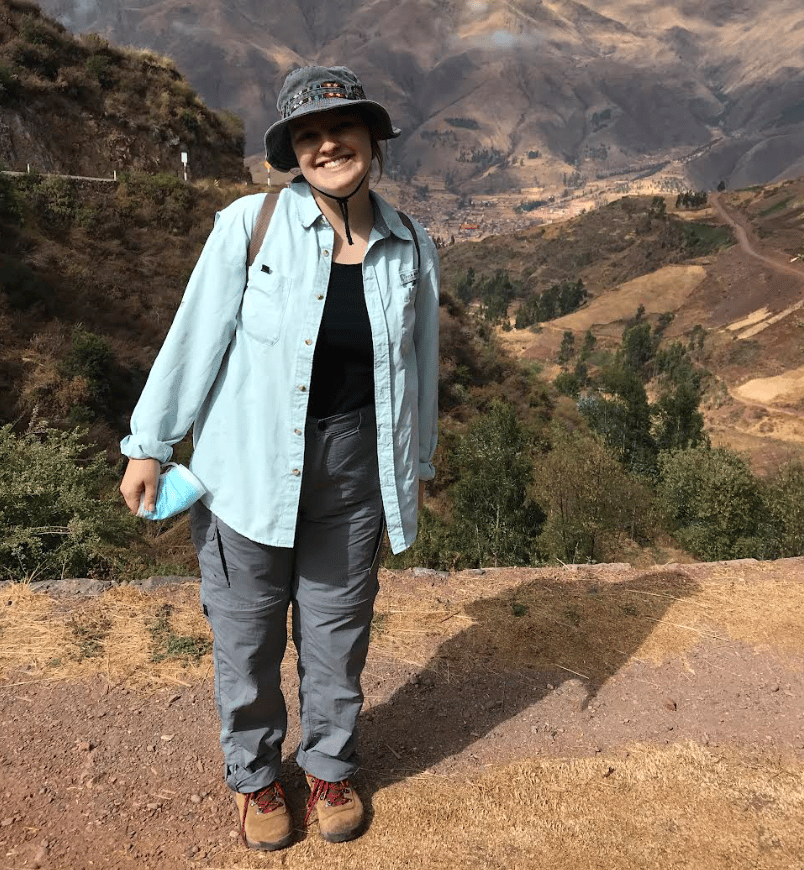
Meet Taylor Weddington
Peru 2022
TGP Scholarship Recipient
University of North Carolina – Wilmington
Major: Environmental Science
Graduation Year: 2022
“Aside from the amazing academic, cultural and recreational experiences, I did SO many things I did not think I had the mental or physical capacity to do.”
I was a senior in college and after 3 years of mostly virtual classes, I felt I had a lack of real-world applications in my area of study and wanted to do more hands-on learning outside of my comfort zone. I could not afford a long-term study abroad and I wanted to find a program that would not conflict with my required course schedule. TGP stood out to me because it was a fraction of the cost of more extensive study abroad programs and took place during my school break. Better yet, the programs were aligned with environmental science and sustainability, my two passions. It was a perfect match! When I received the TGP scholarship, I had a feeling of relief, as well as immense gratitude. This financial support meant I would actually be able to afford to go on a life-changing trip that will be a milestone in my personal life, as well as advance my career.
My initial challenge [during the enrollment process] was deciding which program to choose. I was divided between learning about renewable energy in Iceland, or water management in Peru. Both are special interests of mine and both trips would be full of incredible knowledge and experiences. Andrea from TGP took the time to set up an individual call with me to discuss which trip would align more with my interests and career goals. I am so glad we had this discussion because after hearing about the program from someone who attended, it was obvious that Peru was for me! After this was solidified, the enrollment process was smooth and any time I had a question, the staff at TGP were quick to help!
In the line for customs in the Lima airport, I started talking to the woman in front of me. It turned out that she was from Peru and lives in Lima. I told her it was my first time outside of the U.S, and she was surprised that I chose Peru to be the first place I traveled to. She said she was honored that Peru would be my first international experience. We talked about our jobs and our lives, and what living in Peru is like as a young professional. This allowed me to get a better feeling of who Peruvians are and compare what life is like in Peru to my own life in America. This small exchange at the airport set the tone for the rest of my trip and increased my ability to see past my own perspectives and increase my cultural flexibility. A small interaction like this is just one of the many opportunities that students who cannot afford to get outside of their bubble will miss out on and not have access to the skills of being culturally flexible, networking and communicating that are often taken for granted by students who are able to travel often. These are invaluable skills that can improve interpersonal relationships and careers; however, you need to have the resources to have this situation occur in the first place. From my experience in my hometown, people can be stuck in one perspective at no fault of their own, and this can limit opportunities for growth personally, as well as for the community.
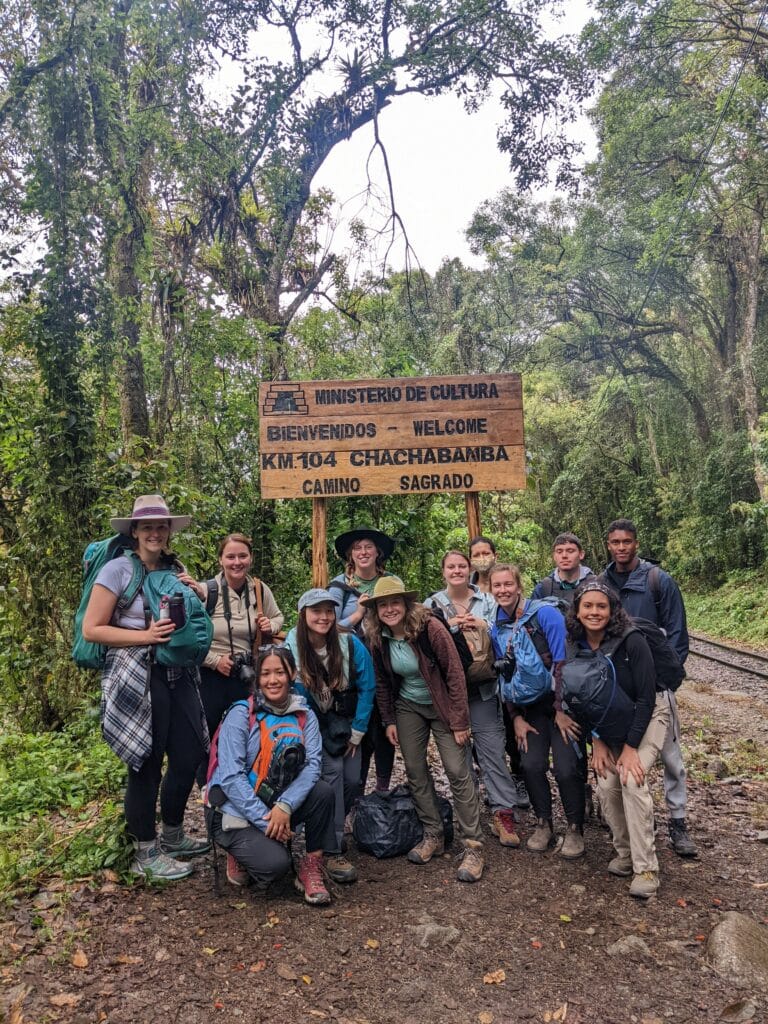
“…on the same day I saw the most ethereal light shining through the clouds onto the Peruvian mountain tops and breathed in a fresh gust of wind, I also hiked along the most polluted river in Cusco and inhaled the dire scent of water pollution. Although these truths can be hard to face, it is invaluable to see all the parts that make a whole, especially when learning about complex subjects such as sustainability.”
I originally expected my trip to feel something like the travel shows on PBS where you go on lots of site seeing to most popular places and are able to witness your surroundings, maybe take a few notes. WOW, was I wrong. As soon as I stepped foot in Peru, we did not just walk and look around, we were absorbed into this ecosystem and its culture. Not only did we see the most beautiful places I have ever seen, but we also visited the places that are not sugar coated for the public eye. We learned about the abundance of the positive aspects of Cusco and had a chance to dig deeper into social and environmental issues that are also part of Cusco. For example, on the same day I saw the most ethereal light shining through the clouds onto the Peruvian mountain tops and breathed in a fresh gust of wind, I also hiked along the most polluted river in Cusco and inhaled the dire scent of water pollution. Although these truths can be hard to face, it is invaluable to see all the parts that make a whole, especially when learning about complex subjects such as sustainability.
As someone who is passionate about water quality and water resources, I enjoyed out visits to the water treatment plant, the hydroelectric facility, the Huancaro River and the multiple Incan terracing sites such as in Tipon. I loved being able to see both the modern and ancient strategies that Peruvians use to manage their water resources, and how I can use these as case studies for guidance on my projects in the future. Our [Capstone] Project was focused on designing a community gathering space and clean water collection site. Originally, we wanted to create a plan to implement multiple stormwater control methods using nature-based solutions to reduce the amount of stormwater runoff going from the streets of Cusco into the river, but as our ideas within the group shifted, we decided to change our goal to increase access to potable water in the areas of Cusco that have had less investment in drinking water infrastructure. Our group had many different great ideas, and it was a challenge to narrow them down and work on a common goal. In the end, we decided to focus our efforts on an idea that everyone was interested in, and we could use the experiences we had throughout the trip to lead our decision making. The end result was a community planned drinking water filling station that would be placed according to where it is needed most, and have a community buy in and maintenance program.
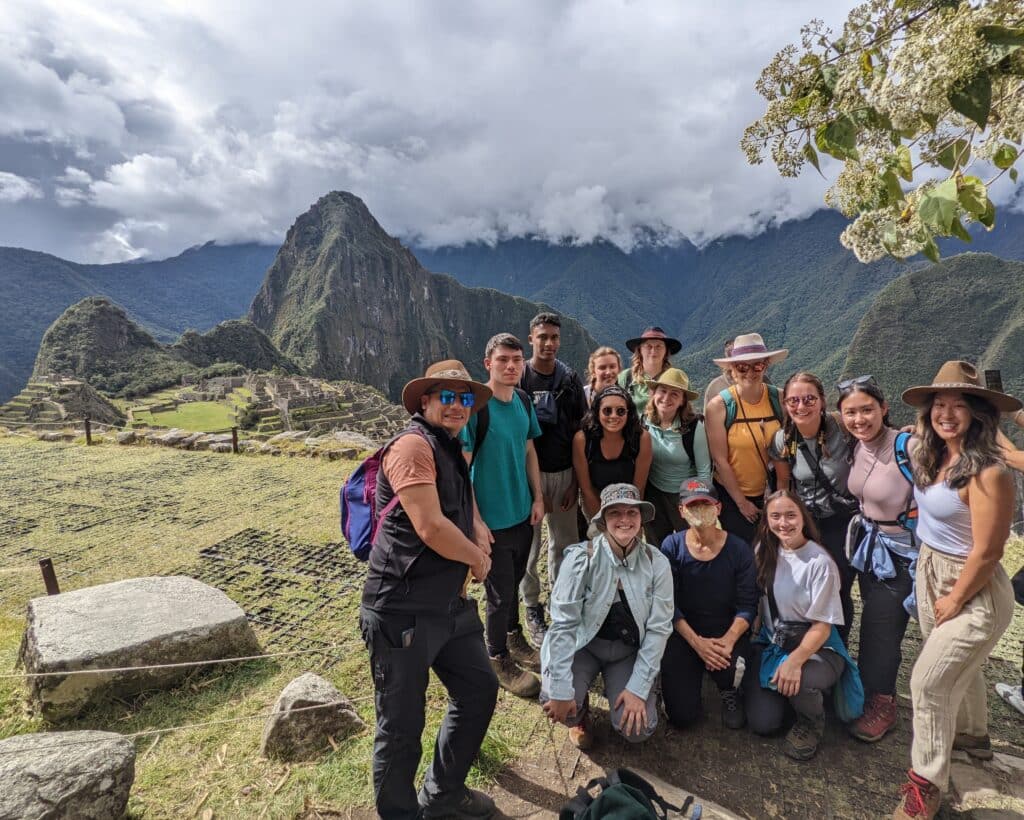
“I left the trip feeling like I could take anything that life threw at me.”
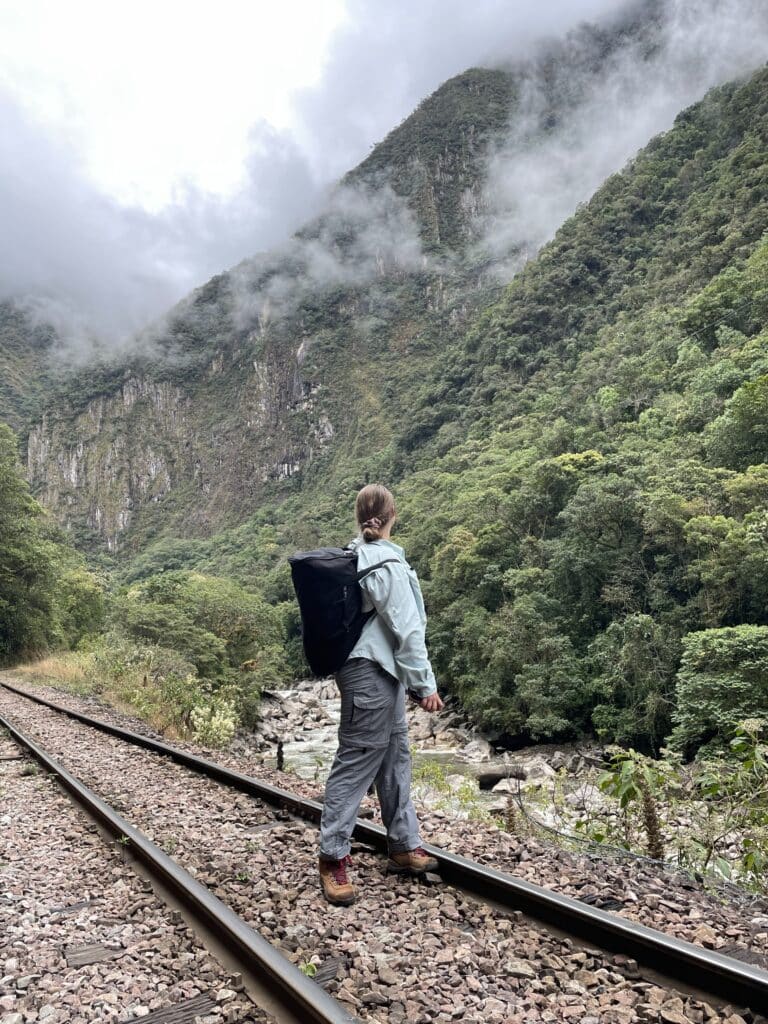
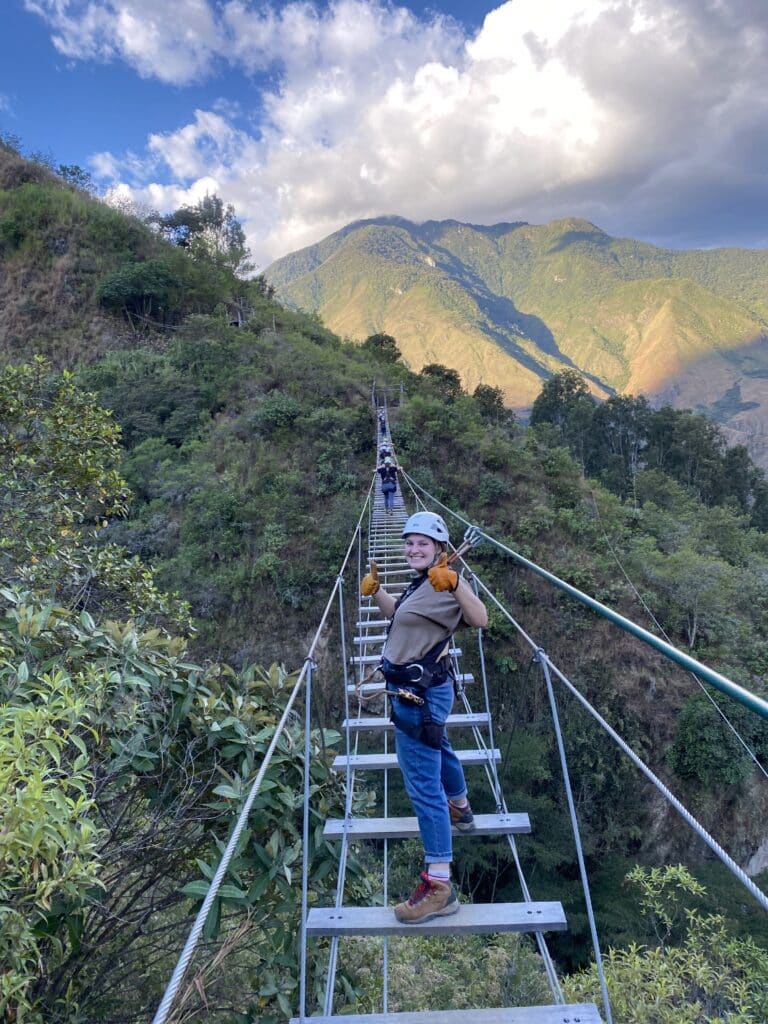
Aside from the amazing academic, cultural and recreational experiences, I did SO many things I did not think I had the mental or physical capacity to do. As someone who struggles with anxiety and imposter syndrome, just telling people that I was going to Peru for study abroad made me feel apprehensive. However, during the trip I was so excited to be there and try everything that I could, there was no room for fear. By the end of the trip, I had zip-lined a mile high in the air above a rocky ravine UPSIDE DOWN, jumped off a cliff into a river, put my feet in the air on the front of an inflatable raft while going down white-water rapids, danced until 2 am in the discoteca, tasted the creamy brains of a guinea pig and hiked on railroad tracks to Machu Picchu. I left the trip feeling like I could take anything that life threw at me.
I want to thank Andrea at TGP, Briar at TGP, Melissa at TGP, UNCW Education Abroad Advisor Natalie Palmer, Gilman Faculty Advisor Brian Chandler and everyone who made my scholarship possible!
Taylor’s advice for new GREENies:
If you want to study abroad but do not have the financial ability, do not give up. Us students that have financial barriers know things are not always handed to us, so get ready to do some hustling. Set up a meeting with your school’s study abroad office and be transparent about your financial situation. They will most likely have a whole list of scholarships or grants you can apply to.
But do not stop there. Once you have found scholarships that you are eligible for, have your Study Abroad advisor read your essays over and make suggestions to your drafts. Having someone that understands what kind of verbiage study abroad scholarship selectors are looking for could mean the difference between being selected for a scholarship or not. I know it can seem hopeless writing essay after essay, but you really do miss every shot you don’t take.
